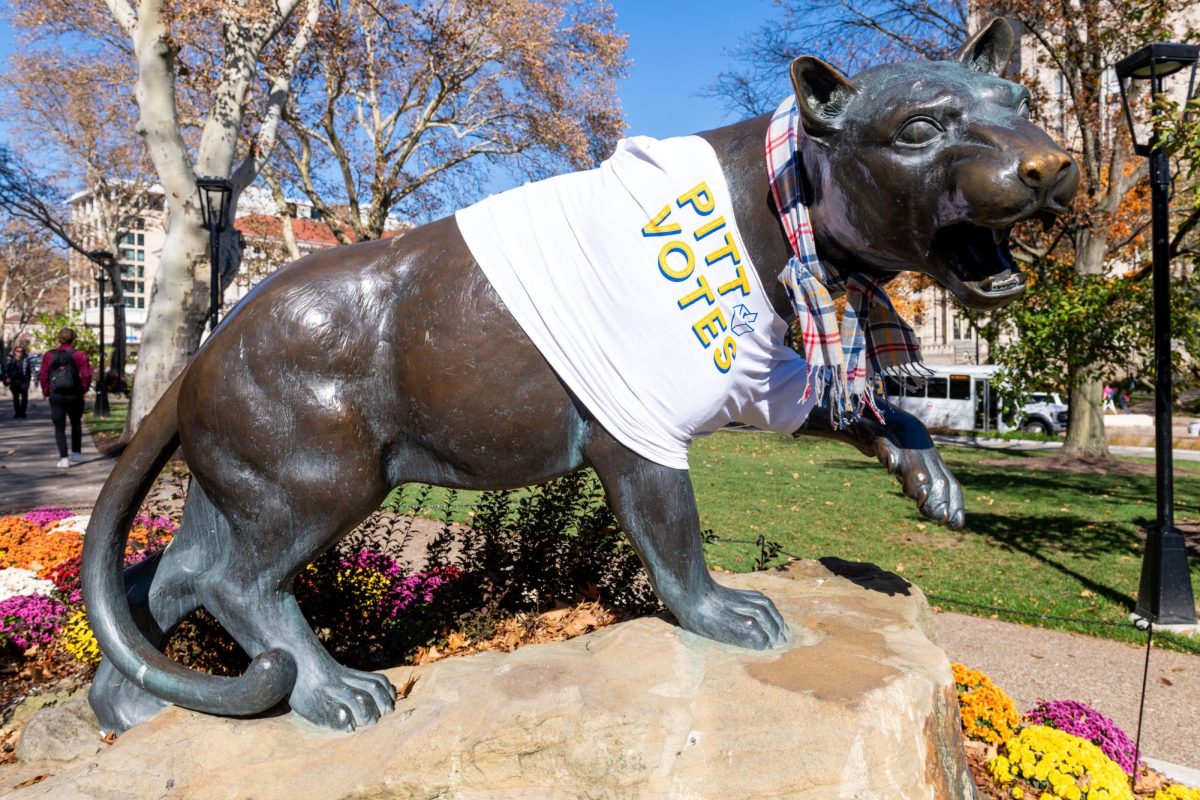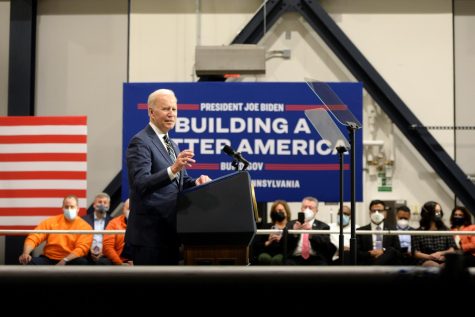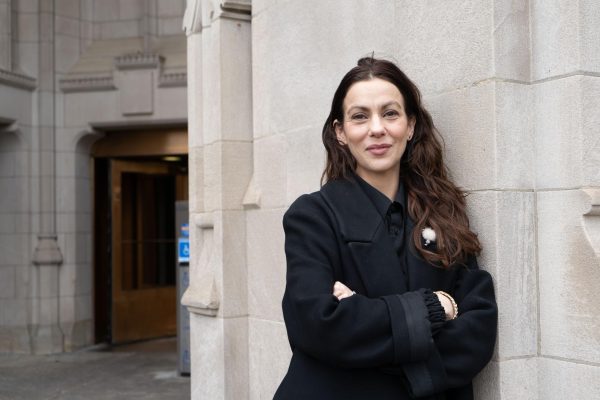Administration discusses apparel-provider oversight
March 26, 2013
Although one student group has the ear of Pitt’s administration, whether it’ll get what it wants is another matter.
Members of Americans for Informed Democracy, an advocacy group active at Pitt, met with Vice Provost and Dean of Students Kathy Humphrey last Wednesday. The students presented their case that Pitt should affiliate itself with the Worker Rights Consortium, a non-profit organization that monitors working conditions at factories that produce apparel and other products. Over this past academic year, the group has sought to persuade the University that affiliating with the WRC will better ensure the rights of the workers who make Pitt’s apparel, and this meeting was a step toward the dialogue the group hoped to establish with the administration.
Wednesday’s meeting was the second to take place between Humphrey and representatives from AID and other groups in the No Sweat Coalition, which includes AID and other groups that wish to show public support for the University affiliating with the WRC.
AID President Viveka Mandava said she and other students met with Humphrey and Vice Chancellor for Community Initiatives G. Reynolds Clark for the first time six months ago. At the meeting last Wednesday, Mandava said, Humphrey told her and the others present that Pitt’s administration has not yet adequately researched the meaning of affiliation with the WRC.
AID and other groups believe the WRC will ensure safe and fair conditions at factories that make Pitt’s apparel. The University is currently an affiliate of the Fair Labor Association. Through audits, both the WRC and the FLA monitor working conditions at factories that make apparel and other products. But Mandava believes that the WRC does so more objectively and better serves workers’ interests.
The University, however, doesn’t appear ready to make a transition in labor-monitoring firms just yet.
Pitt Spokesman John Fedele said via email that Humphrey “is listening to students’ concerns, and has scheduled additional meetings to further our discussion.”
He said that the University had no additional comment.
Throughout this last school year, AID and other members of the No Sweat Coalition have sought to persuade Pitt’s administration to affiliate with the WRC. Mandava and other members of AID said there is ample evidence that affiliating with the WRC will give the University confidence that the workers who produce its apparel do so under fair conditions and receive adequate compensation.
Mandava said that the FLA doesn’t provide this guarantee.
Although the FLA affiliates itself with universities and other organizations, it also aligns with private companies — apparel manufacturers included.
Because these private companies provide the FLA with funds, Mandava said, a conflict of interest arises.
Mandava said the WRC receives its funding entirely from non-governmental organizations and from universities.
“We feel very confident in terms of our estimation of the WRC,” she said. “We are willing to work with [University officials] to ensure that they have all the facts so they can make a decision.”
Last October, Heeral Coleman, the FLA’s director of communications and outreach, told The Pitt News that the FLA requires all companies that affiliate with it to monitor conditions at the facilities that manufacture their products.
Mandava said that when auditors for the WRC monitor conditions at a factory, it interviews workers away from the job site. According to Mandava, those who conduct the FLA’s audits do not.
Aaron Pickering, the FLA’s communications manager, said recently in an email that the FLA leaves the decision on whether to interview workers at the site or elsewhere up to the discretion of the auditors.
Mandava said that members of AID have thoroughly researched the WRC and what they believe are its comparative advantages. Michael Wooley, the group’s secretary, has written a research paper on the subject that is more than 40 pages in length and includes almost 150 citations.
Members of AID have delivered copies of the paper to Humphrey’s office, as well as to Clark’s and Chancellor Mark Nordenberg’s offices. The group has also posted a copy of the paper on the No Sweat Coalition’s website.
Though Mandava is already convinced that her group has ample evidence, she emphasized that the group was willing to continue to work with the University to make its case for affiliation with the WRC. She said that AID does its homework when it prepares statements for the University or broader public.
“We want to make sure that the information behind [our argument] is factual and correct,” she said. “That it isn’t sensationalized.”







